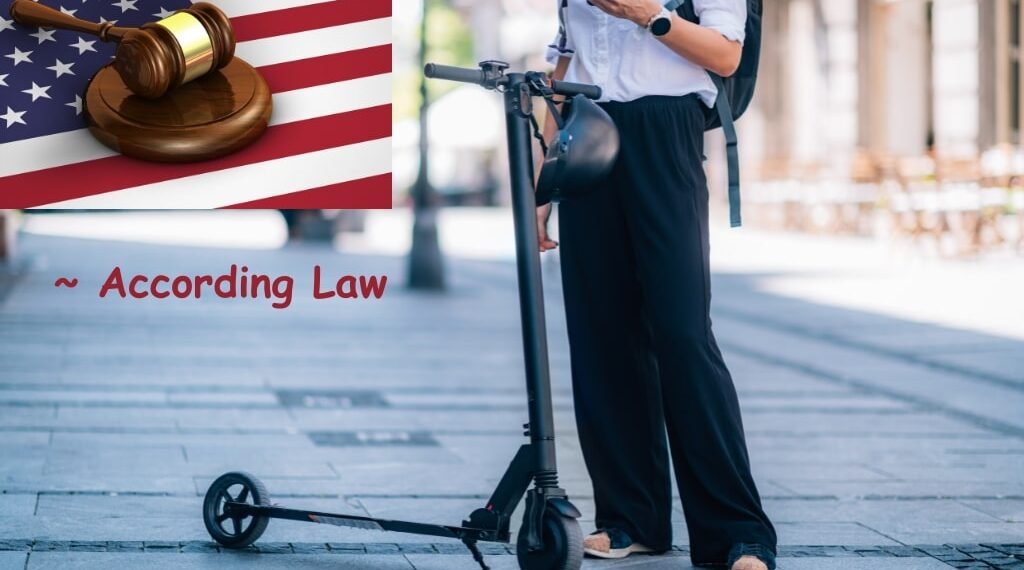Is the Dudu 3 electric scooter legal in the U.S.? Learn about legislation, licensing rules, and road-use restrictions before riding.
Electric scooters have taken over roads in America. Whether you’re commuting to work, zipping around city streets, or just cruising around, e-scooters have become a common way to get around. But before you hop aboard your Dudu 3 electric scooter, you can’t help but ask: Is Dudu 3 electric scooter legal in United States?
The answer to that varies by locale. Electric scooters are legal in a majority of U.S. states, but by state, city, and even county, regulations differ. Some have strict regulations, and some treat them as bicycles. We’ll break it all down so you can ride confidently.
Table of Contents
My Introduction to Electric Scooter Regulations
I remember clearly when I took my first e-scooter ride in America. It was a California morning with sunshine, and I had just rented an e-scooter for the very first time. I was cruising along a sidewalk when, suddenly—a police officer brought me to a stop.
“Hey, you can’t ride here,” he said.
It turns out that in California, you must ride your e-scooter in the street, not on a sidewalk. On that day, I learned that e-scooter legislation varies. It has been a challenge ever since to learn about the legal side of e-scooters—so you don’t have to do what I did!
Federal Regulations Regarding Electric Scooters in the United States
Let’s cover federal regulations that apply to all electric scooters in the U.S. before talking about legislation in individual states.
✅ Maximum Speed: 20 mph
✅ Motor Power Capacity: 750 watts or less
✅ Road Legality: Allowed to be ridden in public roads unless forbidden by local regulations.
It means that provided your Dudu 3 e-scooter meets these criteria, it’s typically legal at a federal level. State and local governments do have final jurisdiction with regards to where and how you ride.
State Specific E-scooter Regulations
Each state has unique regulations, and a few grant power to municipalities to impose even stricter regulations. A few examples include:
Helmet Requirements
Age and License Requirements
These rules highlight why you should always check your local legislation before using your Dudu 3 e-scooter.
Do You Need a License to Ride a Scooter or Electric Bike?
One question that is asked often is: Do you need a license to ride an e-bike?
It depends upon the state and vehicle type. Electric scooters and bicycles do not need a license in a majority of states, as long as they:
✔ Travel no faster than 20 mph.
✔ Have a power output of 750 watts or less.
✔ Are ridden in approved locations
Certain states do require a driver’s license in the event that the e-scooter would be considered a moped or a motor vehicle.
Can You Ride Electric Scooter on Road Without License?
One more key question is: Can you use an electric scooter on a road without a license?
The quick and easy answer is yes, in most states. But there are qualifications:
For instance, in California, you can ride electric scooters in roads with a posted speed limit below 25 mph, provided you ride in bike lanes.
If you’re not clear about what regulations apply in your state, call your local Department of Motor Vehicles (DMV) or transportation office.
Where Can You Ride the Dudu 3 Electric Scooter Legally?
If you have a Dudu 3 e-scooter, you’ll want to ride it somewhere that it’s legal to do so. Here’s a general guideline:
✔ Allowed:
❌ Prohibited or Banned:
To avoid getting into trouble, it’s best to review your local scooter legislation before taking a ride.
Why Some States Have Stricter E-Scooter Laws
Do you ever wonder why some states have more regulations than others? Usually, it’s a matter of safety and traffic regulation.
For instance, San Francisco and New York have implemented stricter regulations due to:
It’s because some states allow local governments to set rules themselves, rather than having rules across the whole state.
FAQs
1. Is the Dudu 3 electric scooter legal in the United States?
Yes, the Dudu 3 e-scooter is legal in most U.S. states as long as it meets federal regulations (20 mph top speed, under 750W motor). State and local regulations do vary, however, so make sure to check your city’s specific e-scooter regulations.
2. Do you need a license to ride a scooter or e-bike?
You do not need a license to ride a scooter or e-bike in the majority of U.S. states, as long as it meets federal regulations’ power and speed requirements. A few states do classify some e-scooters as a moped, and a driver’s license and registration may be necessary.
3. Can you ride a road-going electric scooter without a license?
Yes, in most states, you can ride a scooter without a license, albeit with restrictions. A number of states have rules stating that scooters must be ridden in bike lanes or roads with a speed limit under 25 mph. Other municipalities have rules against scooters in sidewalks or highways.
4. What states have strict e-scooter regulations?
California, New York, and Connecticut have stricter e-scooter regulations, like wearing a helmet, restrictions on roads, and a speed limit. San Francisco and New York City have additional regulations related to e-scooter use in designated zones. It’s always best to check local DMV or government websites for the latest regulations.
Final Thoughts: Dudu 3 Electric Scooter Legal in United States?
So, Is Dudu 3 electric scooter legal in United States?
✅ Yes, in almost all states! However, regulations do differ by place. Remember these key points before you ride:
If you’re thinking about buying or using a Dudu 3 e-scooter, do yourself a favor and research what your city and state’s regulations are prior to taking it for a ride. Happy trails!
Additional Resources
Want to stay updated on electric scooter laws? Here are some useful resources:
📌 National Highway Traffic Safety Administration (NHTSA)
📌 Electric Scooter Laws by State (DMV Guide)


